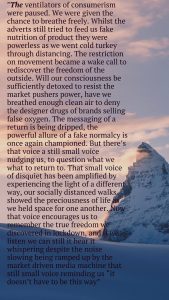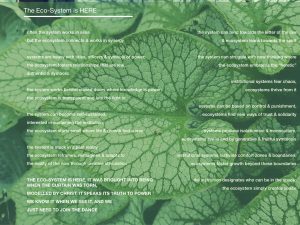I know many people are just trying to cope, just trying to get through, some are trying to keep the show on the road, and few are still trying to carry on regardless but in a different format. But in the midst of this the opportunity to speak to the Adjacent Possible (see Jonnys blog post on this for some background) is probably greater than ever before, but the voices seem lacking and particularly voices from the faith communities.
People struggle to imagine a future they can’t see, and you can’t think yourself into a new way of being. So the possibilities of the moment are immense. People are having to live differently and inhabit new ways of being. But who from the church and how is the church speaking into this? I have had some fascinating conversations by posting simple questions into different Facebook groups eg I posted in a couple of Mountain groups How do your experiences of being lost in the fells help you cope with being in lockdown? In fact I got such good feedback it inspired be to use Lost as theme for a virtual Mountain Pilgrims experience on Sunday.
So how can we speak to adjacent possible? We need the artists and poets and this where we have seen some signs of hope, such as the NHS You clap me now and Tim AKA Beat liturgist Exploring the future and we can all do our part through local action, groups and online. However I wonder in these “unprecedented” times what we are being too called beyond the acts of service and love that the church has been brilliant at responding with such as keeping the foodbanks open, connecting and collecting shopping etc. With so many millions of people on lockdown, if only one or two percent of those people re-evaluate their life choices and decide to live differently after lockdown the culture shift could be seismic; are being called to speak into this? Can we draw on the wisdom traditions, to help people see the adjacent possible that so many are reaching for and is so tantalisingly close, and how might we do so on the scale of these unprecedented times. Let’s mobilise to speak to the adjacent possible (my offering is below), let’s dialogue with new people beyond our social media bubbles but let’s take a few risks to connect at scale for example I would love to see a conversation between Russell Brand and Rev Kate Bottley or Rev Richard Coles. What would you suggest, what future do you want to see and who are you talking about this with?


